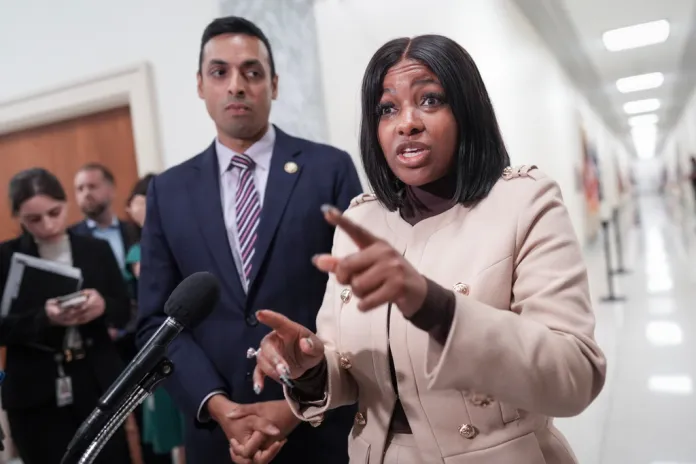Depression more common among liberal youth, especially girls.
Conservative vs. Liberal Teenagers: Who’s Happier?
A recent study conducted by Columbia University has shed light on a fascinating difference between conservative and liberal teenagers. According to the research, conservatives are significantly happier than their leftist counterparts.
What the Study Revealed
The study’s findings were nothing short of striking. The researchers discovered that the happiness gap between conservative and liberal teens was not small, but rather significant. However, the cause of this disparity was not as easy to pinpoint.
Why Conservatives Are Happier
While the study did not provide a clear answer as to why conservatives are happier, there are a few theories. Some suggest that conservatives tend to have a more positive outlook on life, while others believe that their values and beliefs provide a sense of purpose and fulfillment.
Conclusion
Regardless of the reason, it’s clear that there is a notable difference in happiness levels between conservative and liberal teenagers. Whether you fall on the right or left side of the political spectrum, it’s important to prioritize your own happiness and well-being.
- Conservatives are significantly happier than liberals, according to a Columbia University study.
- The cause of this disparity is not clear, but some theories suggest that conservatives have a more positive outlook on life or find fulfillment in their values and beliefs.
- Regardless of political affiliation, prioritizing happiness and well-being is crucial.
Unwoke and Smiling: The Politics of Depression Among US Adolescents
In a recent study published in the journal Social Science & Medicine – Mental Health, epidemiologist Catherine Gimbrone and her coauthors analyzed depressive attitudes among 12th-graders in the US from 2005 to 2018. The study, titled “The politics of depression: Diverging trends in internalizing symptoms among US adolescents by political beliefs,” aimed to explore the relationship between political beliefs and depression.
The researchers defined conservatism as “support of individual liberty, right-wing social and religious values, and unregulated free markets,” while liberalism was defined as “support of equal opportunity, free but semi-regulated markets, civil liberties, and social justice.”
The study found that conservative 12th-graders reported lower average depressive affect, self-derogation, and loneliness scores, and higher self-esteem scores than all other groups. On the other hand, from approximately 2011 to 2018, female liberal 12th-graders’ depressive affect score climbed precipitously. Their male liberal counterparts were neck-and-neck with them in terms of depression between 2005 and 2011. However, the boys’ aggressive rise in depressive affect lagged behind the girls’ by a year, starting in earnest around 2013.
Here are some key takeaways from the study:
Key Takeaways
1. Conservative 12th-graders reported lower levels of depression
According to the study, conservative 12th-graders reported lower levels of depression than their liberal counterparts. This finding challenges the popular notion that conservatism is associated with negative mental health outcomes.
2. Female liberal 12th-graders experienced a significant increase in depressive affect
The study found that from 2011 to 2018, female liberal 12th-graders experienced a significant increase in depressive affect. This finding suggests that there may be something about the progressive mentality that contributes to depression.
3. Male liberal 12th-graders also experienced an increase in depressive affect
While male liberal 12th-graders were neck-and-neck with their female counterparts in terms of depression between 2005 and 2011, their aggressive rise in depressive affect lagged behind the girls’ by a year, starting in earnest around 2013.
4. Conservative 12th-graders of either sex did not come close to liberal depression levels
At no time between 2005 and 2018 did conservative 12th-graders of either sex come close to liberal depression levels. This finding suggests that there may be something unique about the progressive mentality that contributes to depression.
In conclusion, the study suggests that there is a growing sense that the progressive mentality is a key depressive factor. However, more research is needed to understand the complex relationship between political beliefs and mental health outcomes.
Why Are Conservatives Happier Than Liberals?
A Columbia University Study Reveals the Surprising Truth
A Columbia University study has revealed a striking difference between conservative and liberal teenagers. Conservatives are generally happier than their leftist counterparts—not by a little, but by a significant measure.
The researchers found that conservative males’ depressive affect score was slightly higher than their female counterparts until mid-2016, after which female conservatives took a slight lead. However, the more educated their families were, the more likely the students were to be depressed, regardless of political affiliation.
The researchers attempted to account for the significant divergence between conservatives and liberals, suggesting that “conservative ideology may work as a psychological buffer by harmonizing an idealized worldview with the bleak external realities experienced by many.”
While conservatives may have been better equipped to handle reality, the researchers also intimated that liberals may have had a harder time internalizing “a series of significant political events,” such as the election of a black president in 2008; the Great Recession; the student debt crisis; Republicans taking control of Congress; and former President Donald Trump’s 2016 victory.
The researchers indicated the spike in liberals’ emotional instability in recent years might also have something to do with “war, climate change, school shootings, structural racism, police violence against Black people, pervasive sexism and sexual assault, and rampant socioeconomic inequality [that] became unavoidable features of political discourse.”
So, why are conservatives happier than liberals? One theory is that “conservatism and ideological fellow travelers (religiosity, patriotism) may help people make sense of, remain resilient in the face of, and respond constructively to inequality and misfortune, irrespective of where they fall on the social strata. Liberal ideology, by contrast, may not provide the same benefits to adherents.”
However, journalist Matthew Yglesias suggests that catastrophizing (i.e., focusing on the worst possible outcomes) is a big factor in liberal unhappiness, especially since “mentally processing ambiguous events with a negative spin is just what depression is.”
Conservative commentator David Brooks also suggests that liberals are less happy and more prone to depression because they “suffer from what you might call maladaptive sadness.”
Whatever the reason, the Columbia University study shows a significant difference in happiness levels between conservatives and liberals, and it’s worth exploring why.
Some Possible Reasons for the Happiness Gap:
- Conservative ideology may work as a psychological buffer by harmonizing an idealized worldview with the bleak external realities experienced by many.
- Conservatism and ideological fellow travelers (religiosity, patriotism) may help people make sense of, remain resilient in the face of, and respond constructively to inequality and misfortune, irrespective of where they fall on the social strata.
- Liberal ideology may not provide the same benefits to adherents.
- Catastrophizing (i.e., focusing on the worst possible outcomes) is a big factor in liberal unhappiness.
- Maladaptive sadness, characterized by a catastrophizing mentality, extreme sensitivity to harm, and a culture of denunciation, may be more prevalent among liberals.
Whatever the reason, it’s clear that conservatives are generally happier than liberals, and it’s worth exploring why.
Like Blaze News? Bypass the censors, sign up for our newsletters, and get stories like this direct to your inbox. Sign up here!
How a Heartwarming TikTok Video Helped Dad’s App Go Viral
When a daughter shared a touching video on TikTok about her dad’s new app, she had no idea it would lead to millions of downloads. The app, which helps users stay organized and on top of their tasks, quickly gained popularity thanks to the heartwarming story.
Introducing Total Battle – The Ultimate Online Strategy Game of 2022
If you’re a fan of strategy games, you won’t want to miss Total Battle. This tactical game is taking the online gaming world by storm, with its immersive gameplay and stunning graphics. Play now and see for yourself!
Get Emergency Contraception and Snacks at the Same Time
A university in Washington DC has installed a vending machine that dispenses emergency contraception alongside snacks like Doritos. This innovative solution makes it easier than ever for students to access the care they need.
5 Tips from Experts on Using Your Device to Stay Organized
- Set reminders for important tasks
- Use a to-do list app
- Organize your files and folders
- Take advantage of calendar apps
- Use productivity tools like T-Mobile’s device management features
Staying organized can be a challenge, but with these tips from experts, you’ll be on your way to a more productive and efficient day. Check out T-Mobile’s device management features for even more ways to stay on top of your tasks.
Unwoke and Smiling: Why Conservatives Report Higher Levels of Happiness and Meaning in Life
A recent study published in the journal Social Science & Medicine – Mental Health has shed light on the diverging trends in internalizing symptoms among US adolescents by political beliefs. The study analyzed depressive attitudes between conservative and liberal 12th-graders from 2005 to 2018. The researchers found that “conservatives reported lower average depressive affect, self-derogation, and loneliness scores and higher self-esteem scores than all other groups.”
The study also found that from approximately 2011 to 2018, female liberal 12th-graders’ depressive affect score climbed precipitously. Their male liberal counterparts were neck-and-neck with them in terms of depression between 2005 and 2011; however, the boys’ aggressive rise in depressive affect lagged behind the girls’ by a year, starting in earnest around 2013.
At no time between 2005 and 2018 did conservative 12th-graders of either sex come close to liberal depression levels, meaning liberal boys are ever sadder than conservative girls.
The researchers attempted to account for the significant divergence between conservatives and liberals, suggesting that “conservative ideology may work as a psychological buffer by harmonizing an idealized worldview with the bleak external realities experienced by many.”
While some have since proffered various explanations for the delta, such as the impact of social media or respondents’ religiosity, there is a growing sense that the progressive mentality is a key depressive factor.
So, why are liberals so sad? One theory is that conservatism and ideological fellow travelers (religiosity, patriotism) may help people make sense of, remain resilient in the face of, and respond constructively to inequality and misfortune, irrespective of where they fall on the social strata. Liberal ideology, by contrast, may not provide the same benefits to adherents.
Additionally, people “who are unwell may be especially attracted to liberal politics over conservatism for a variety of reasons.”
While catastrophizing is bad for the soul, progressive institutional leaders have taught young ideologues that it’s a “good way to get what they want.” Instead of changing the things they can change and seeking the grace to accept the things they can’t, they’re dwelling unproductively as problems fester.
In conclusion, the study suggests that conservatism may be a psychological buffer that helps people remain resilient in the face of adversity, while liberalism may not provide the same benefits to adherents. So, let’s all strive to be unwoke and smiling!
Are Liberals Prone to Depression?
The Problem with Victimhood
According to liberal writer Matthew Yglesias, the left’s obsession with victimhood is causing more harm than good. He argues that labeling everything offensive as “deeply problematic” or even violent is not only inaccurate but also damaging to mental well-being.
The Power of Resilience
Resilience and mental well-being are closely linked, and feeling like the captain of your own ship is key to achieving both. Conservative commentator David Brooks agrees, suggesting that liberals’ maladaptive sadness is caused by a catastrophizing mentality, extreme sensitivity to harm, and a culture of denunciation.
The Cult of the Victim
Editor Rusty Reno takes it a step further, suggesting that rising teen suicide rates are linked to the left’s embrace of victimhood. The limitless arena of maximalist denunciation and constant fear of being denounced next is creating a culture of fear that is not conducive to emotional health.
If you want to stay informed on stories like this, sign up for our newsletters and bypass the censors.
" Conservative News Daily does not always share or support the views and opinions expressed here; they are just those of the writer."




